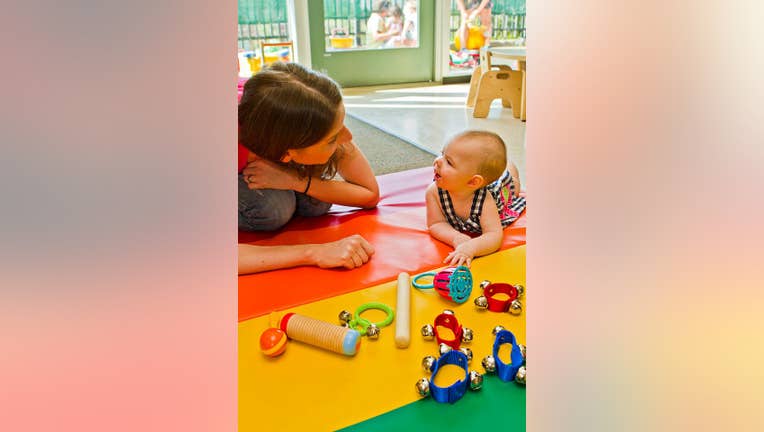Group that helps abused kids loses $1 million in federal funding

SEATTLE -- Learning to be a good mother has taken time for Danielle Goodwin after she lost custody of her five children because of her drug addiction. Without the help of Childhaven, Goodwin and her husband doubt they would have been able to get their family back together, but the King County program is facing a $1 million loss in federal funds due to changes in the Health Care Reform Act.
While 50 percent of Childhaven's funding comes from private donors, with the balance of its funding coming from the state and federal governments, the loss of federal funding means that a number of children won't get the help they need.
“It does mean 100 more children are not going to be able to get the help they need, and that kills us,” Childhaven president Maria Chavez Wilcox said.
The lack of funding had pushed Childhaven into a plan to close one classroom in each of its three locations.
“How can you possibly look into the eyes of a 6-month-old or a 3-year-old and say ‘You’re the one that’s going to be abused because we can’t take care of you.' I don’t want to have to make that decision,” Wilcox said.
For Goodwin, her drug addiction contributed to her inability to take care of her children and is what eventually led her to Childhaven.
“From age 10 I began using marijuana and cocaine. Around 14 it was heroin. I was an IV drug user and from that point on, it really devastated my life,” Goodwin said.
In order to help Goodwin, Child Protective Services referred her to Childhaven.
“We typically get the hardest core cases, like children who have been found in a locked closet for days on end," Chavez Wilcox said. "This is the place of last resort.”
The program started more than 100 years ago in 1909 as the Seattle Day Nursery. It was a place where women could drop their kids off and go to work. In 1977 founder Pat Fogerty, a child abuse survivor, saw a need in the community and revamped the organization to what it is today, a therapeutic daycare and preschool for abused infants and kids up to age five.
“They didn’t ask for this. They don’t deserve this and don’t have a voice except for Childhaven. We are their voice,” Chavez Wilcox said.
In the morning, vans head out to pick up each child -- 400 of them every day. Once they arrive, kids are fed and then head into classrooms.
“Some of these children come in here and they’re angry -- you don’t know how to react when you’ve been confronted with abuse of some sort and you tend to lash out. We had one child who was afraid to take a nap because he was afraid of what was going to happen when he opened his eyes,” Chavez Wilcox said.
At the end of the day, Childhaven drops the kids off at home. Parents are also invited to see firsthand the work teachers do with their kids.
“They encouraged me to come to the classroom. I got to see the way they interacted with my children and that helped me because I didn’t have any healthy model of parenting,” Goodwin said.
“Their welcoming support is what gave us the courage and foundation to move forward each and every day. The phone calls, the van drivers, the compassion they gave us, picking our kids up and dropping them off, there was no judgment. I know without question we wouldn’t have made it (without them),” James Encinas, Goodwin's husband, said.
Referrals to Childhaven come primarily from CPS, hospitals and pediatricians. In an effort to offset the loss of federal funding, the organization started its Second Century fundraising campaign. To make a donation or learn more about the organization, click here.

